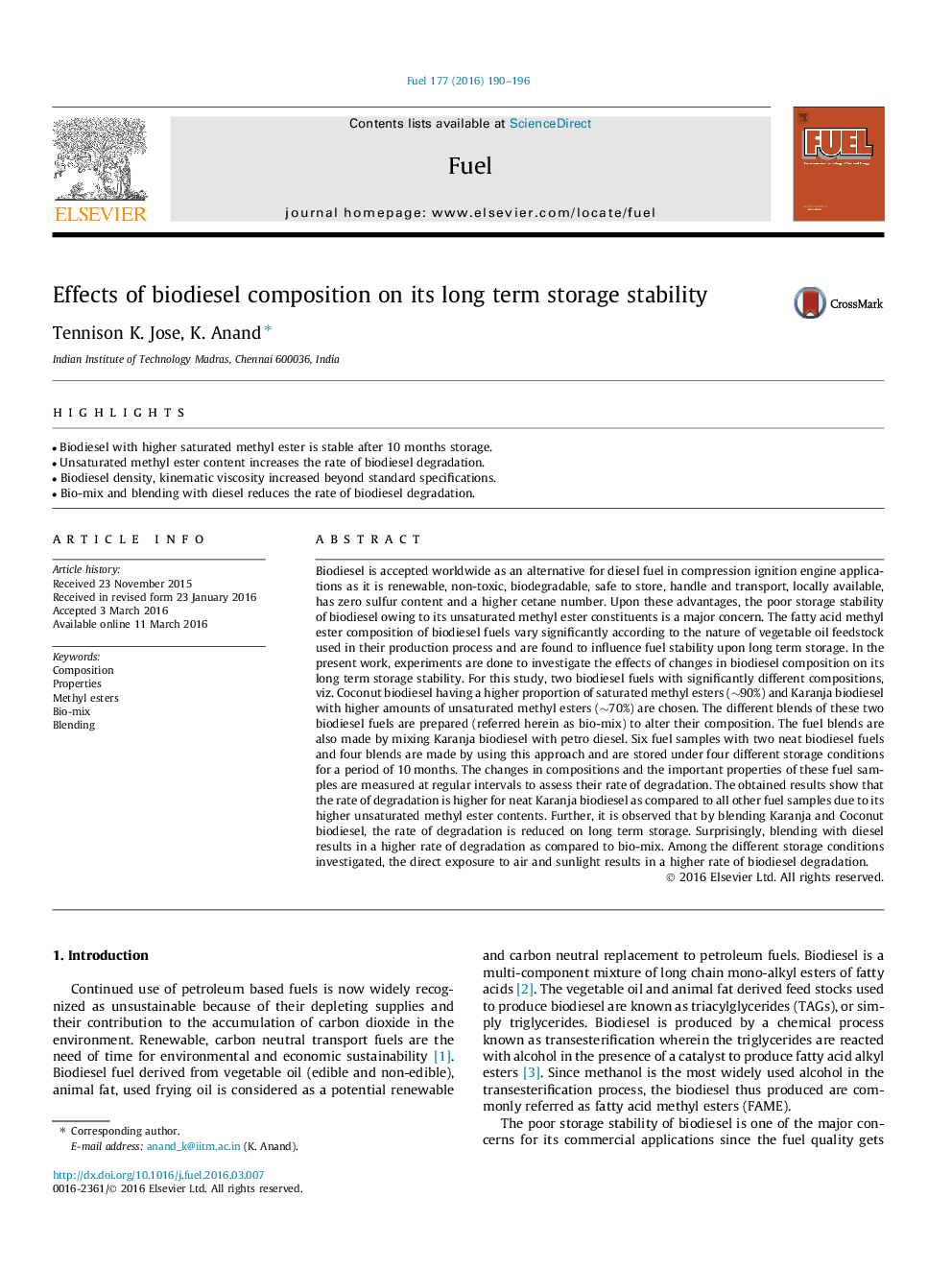| کد مقاله | کد نشریه | سال انتشار | مقاله انگلیسی | نسخه تمام متن |
|---|---|---|---|---|
| 205131 | 461097 | 2016 | 7 صفحه PDF | دانلود رایگان |
• Biodiesel with higher saturated methyl ester is stable after 10 months storage.
• Unsaturated methyl ester content increases the rate of biodiesel degradation.
• Biodiesel density, kinematic viscosity increased beyond standard specifications.
• Bio-mix and blending with diesel reduces the rate of biodiesel degradation.
Biodiesel is accepted worldwide as an alternative for diesel fuel in compression ignition engine applications as it is renewable, non-toxic, biodegradable, safe to store, handle and transport, locally available, has zero sulfur content and a higher cetane number. Upon these advantages, the poor storage stability of biodiesel owing to its unsaturated methyl ester constituents is a major concern. The fatty acid methyl ester composition of biodiesel fuels vary significantly according to the nature of vegetable oil feedstock used in their production process and are found to influence fuel stability upon long term storage. In the present work, experiments are done to investigate the effects of changes in biodiesel composition on its long term storage stability. For this study, two biodiesel fuels with significantly different compositions, viz. Coconut biodiesel having a higher proportion of saturated methyl esters (∼90%) and Karanja biodiesel with higher amounts of unsaturated methyl esters (∼70%) are chosen. The different blends of these two biodiesel fuels are prepared (referred herein as bio-mix) to alter their composition. The fuel blends are also made by mixing Karanja biodiesel with petro diesel. Six fuel samples with two neat biodiesel fuels and four blends are made by using this approach and are stored under four different storage conditions for a period of 10 months. The changes in compositions and the important properties of these fuel samples are measured at regular intervals to assess their rate of degradation. The obtained results show that the rate of degradation is higher for neat Karanja biodiesel as compared to all other fuel samples due to its higher unsaturated methyl ester contents. Further, it is observed that by blending Karanja and Coconut biodiesel, the rate of degradation is reduced on long term storage. Surprisingly, blending with diesel results in a higher rate of degradation as compared to bio-mix. Among the different storage conditions investigated, the direct exposure to air and sunlight results in a higher rate of biodiesel degradation.
Journal: Fuel - Volume 177, 1 August 2016, Pages 190–196
